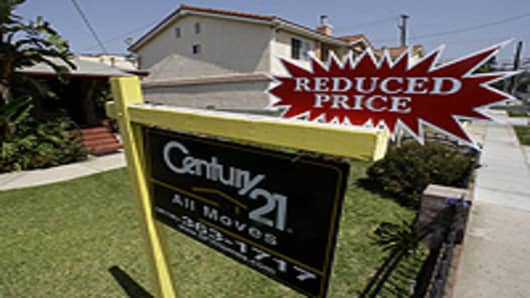U.S. house prices suffered their worst decline in at least 20 years in the second quarter, and there is no sign of a bottom for the market, according to data from Standard and Poor's and economist Robert Shiller.
The S&P/Case-Shiller U.S. National Home Price Index index fell 3.2 percent to 183.89 last quarter from the same period in 2006, its sharpest decline since the index was created in 1987, S&P said in a statement. The pace of decline accelerated from 1.6 percent in the first quarter.
"The pullback in the U.S. residential real estate market is showing no signs of slowing down," Robert Shiller, creator of the index and chief economist at MacroMarkets in Madison, New Jersey, said in the statement.
The report adds to recent indications that the housing slump that began in late 2005 may worsen. On Monday, the National Association of Realtors said inventories of homes rose 5.1 percent in July, boosting the overhang of supply that tends to put downward pressure on prices.
Falling house prices are fueling concern that the economy may head toward recession as homeowners with little equity in their properties are unable to refinance adjustable-rate loans to better terms before monthly payments rise.


